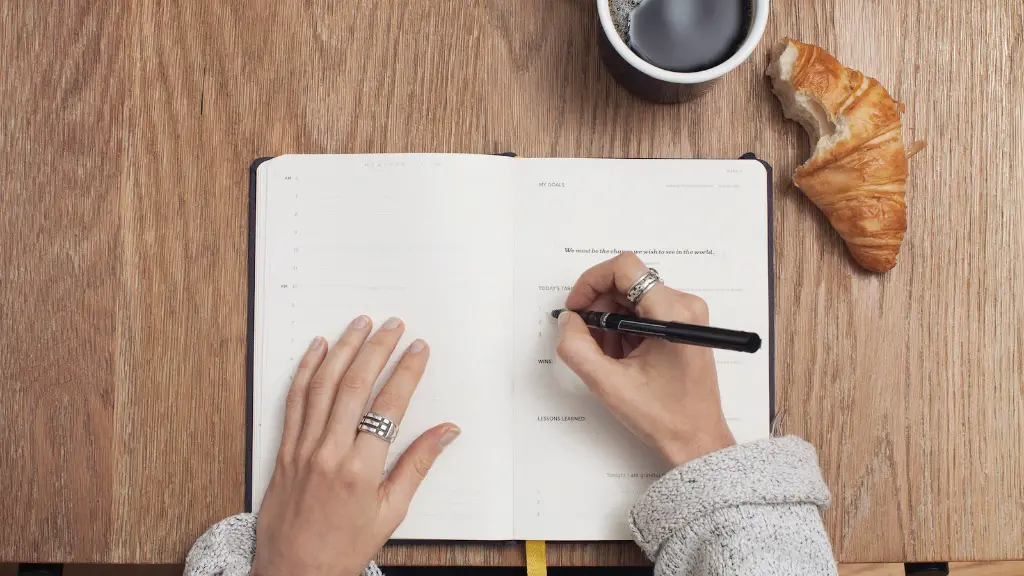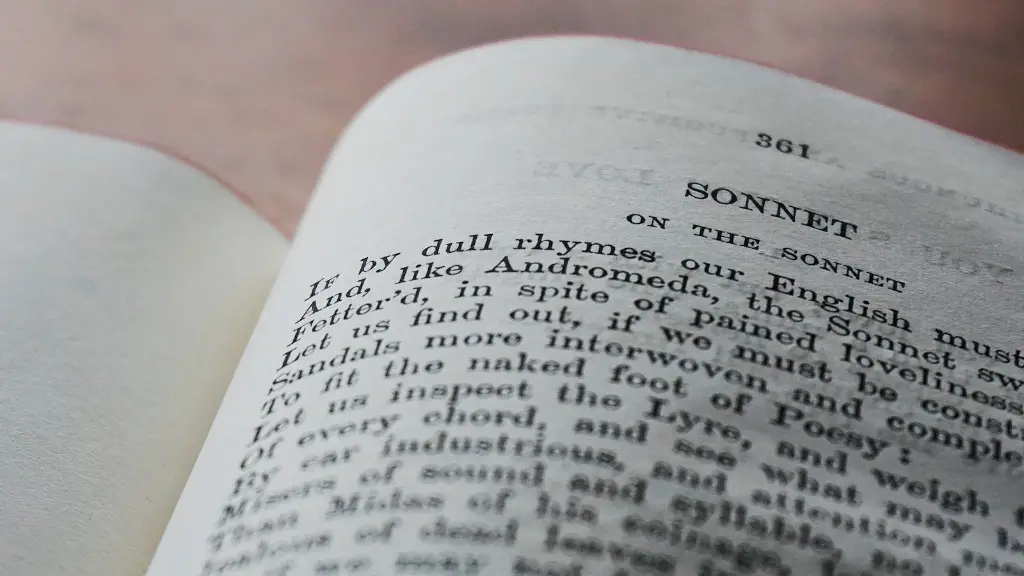Complimenting poetry
Poetry can be an expression of emotions, feelings and memories that touch our hearts and stay with us forever. To be able to appreciate poetry requires us to break away from traditional ways of understanding as poetry often works on abstract and evocative levels. Complimenting someone on their poetry is a great way to show your appreciation and support for their work.
First of all, it is important to be sincere in your compliments. Make sure that you are not just trying to flatter the poet or their work for the sake of it. Genuine expressions of admiration will mean more to the poet than empty praise or criticism. Listen with an open heart and try to identify any meaningful themes in their work.
When you find yourself being moved by a particular poem, be sure to say how it made you feel in exact terms. Express how their work has made an impact on you on a personal level. For example, you can say, “The imagery and vivid descriptions in your poem made me feel a sense of wonder and nostalgia.” It will help the poet to know the real impact of their work if you can express it in concrete terms.
As a compliment, you can also point out specific lines that draw you in and make your heart swell. The poet may be surprised to learn how far their words can reach. Details matter, so mentioning the use of rhyme or an in-depth metaphor will help make the point.
If you are moved by the emotion behind a piece of poetry, refer to it in your compliment. Pay attention to the feelings expressed and notice if they correspond to your own feelings. Showing someone your understanding of the experience they are expressing is also a great way to show your appreciation.
Make sure to also recognize any technical aspects of the writing. If you have firsthand knowledge of the craft of writing poetry, you may be able to offer constructive criticism and advice. Sharing any ideas or techniques you have used can be a great compliment. Even if you have little knowledge of the craft, you can point out the nice techniques and devices used in the poet’s work.
Finally, make sure to talk about the complete poem as a whole. A compliment that focuses specifically on a small element of the piece or its individual elements can be overlooked by the poet. You should take notice of the whole poem and comment on it accordingly.
Being Mindful of your Compliment
The most important consideration when complimenting a poet on their work is to be mindful of the kind of words you use. You don’t want to use words that may be construed as condescending as this may detract from the positive effect of the compliment. It is also important to be specific with your compliments and avoid making broad generalizations as this may not provide any useful insight.
You also should consider the context of your compliment. Compliments should be kept appropriate to the occasion and should reflect the situation. If you are commenting on a poet’s work at an open mic night, you should be sure to keep your comments concise and focus on the positive aspects of the poem without challenging or debating its meaning.
It is also helpful to provide feedback alongside your compliments. This allows the poet to get a better understanding of how their work makes you feel and how to improve or refine it. Keep your feedback constructive, as it is important not to be too critical. Stick to expressing your admiration and letting the poet know how their poem has impacted you.
The Power of Compliments
Complimenting a poet on their work is a powerful way to show your appreciation for their craft. Compliments can be incredibly encouraging, especially for new or emerging poets who may be looking for affirmation or validation of their work.
Complimenting someone also can be a way to show them respect and admiration, which can be invaluable in building relationships. Additionally, compliments can help to build new relationships and strengthen existing ones. A sincere expression of admiration will mean more to the poet than any monetary payment and help to reinforce your shared bond.
Complimenting can also be a way to spark conversations. If you have a conversation with a poet about their work and compliment it in the process, you may learn more about their writing and the perspective of others, as well as your own.
Ultimately, you want to ensure your compliments are meaningful. You may want to discuss the poem with the poet and ask questions about the themes and subject matter of the piece and why they chose to write it. Additionally, you can ask the poet what inspired them to write the piece, or how long it took them to write it.
Tips for Sharing Your Compliments
Yoo want to ensure your compliments are remembered in the long run, it is helpful to make sure that your compliments are unique. Generic compliments are quickly forgotten, so when sharing your compliments it is important to be personal and specific. Being specific can help to show the poet that you have taken the time to really appreciate their work and thoughtfully assess it.
You can make your compliments even more memorable if you share them through a medium such as social media. This allows other readers to get a glimpse into the poem and can be a great way to help to spread the word about the poet’s work.
You can also leave a comment on the poem’s page if published, or share the poem in a discussion. However, while giving the writer credit is important, it is important to ask for permission from the poet before reposting or sharing their work on social media.
Acknowledging a Poet’s Work
The act of complimenting someone on their poetry is a way to acknowledge their hard work and creativity. Writing poetry takes time and effort and a compliment is a way to show someone that you recognize and appreciate their effort. It can be as simple as thanking the poet for taking the time to write a particularly meaningful poem.
Complimenting a poet can also be beneficial for the writer. It can give them the courage to keep writing and believing in their work. Furthermore, compliments can boost their confidence and inspire them to keep pushing their artistic boundaries. It is also helpful to suggest courses or workshops that can help the poet to further develop their craft.
Keeping it Positive
When complimenting a poet on their work, it is important to keep it positive. Criticizing someone’s work can be helpful in terms of giving constructive feedback, but it should never be done as a way to bring someone down. Make sure to focus on the positive aspects of the work and work on expressing your admiration constructively.
Additionally, it is important to be aware of the poet’s feelings. Some poets may take compliments in stride, while others may feel embarrassed or awkward. If a poet seems uncomfortable with compliments, it is important to respect their feelings and to not force them to open up.
Complimenting Across Gender Lines
It is also important to be mindful of gender dynamics, as complimenting someone on their poetry could allude to romantic intentions. Whenever you are complimenting someone, avoid making any physical or intimate comments. Your comments should be about the poem itself and should not come off as objectifying or personal in nature.
It can also be helpful to be aware of the power dynamics that can come into play. Make sure to avoid any language or behaviors that may be seen as patronizing or dominating as this could make the situation uncomfortable for everyone involved.
Conclusion
Complimenting someone on their poetry can be an incredibly powerful way to show your appreciation for their work and build relationships with them. Whether it is in person or online, take the time to express your admiration and your understanding of their poem. Keep in mind that compliments should be sincere and keep the conversation focused on the poem itself. Finally, be mindful of any gender dynamics and respect the feelings of the poet.





